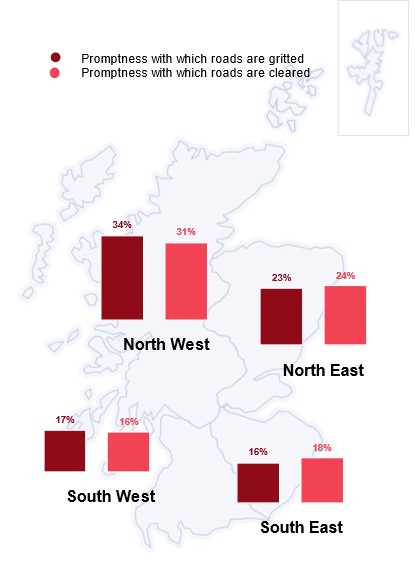Road works and winter maintenance
Satisfaction with road works
Levels of satisfaction with different aspects of road works varied, with respondents being most positive about the frequency of night time lane closures (40% were satisfied) (Figure 3.1).
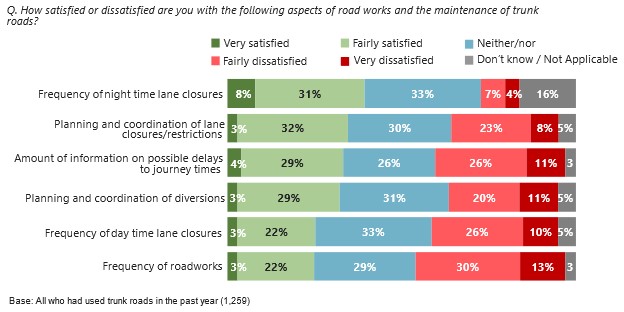
Across all aspects of road works, there has been a decrease in satisfaction between 2019 and 2023. Frequency of road works and frequency of day time lane closures have consistently recorded the lowest levels of satisfaction (both 44% in 2019 and 25% in 2023) (Figure 3.2).
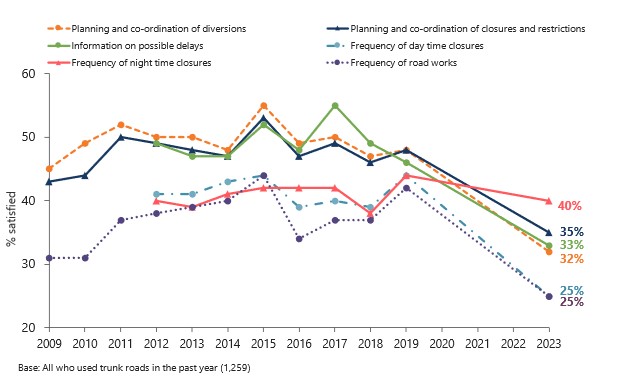
There was little regional variation in satisfaction with road works. However, respondents in the South West were more likely to be dissatisfied with day time lane closures than average (42%, compared with 37% overall) (Figure 3.3).
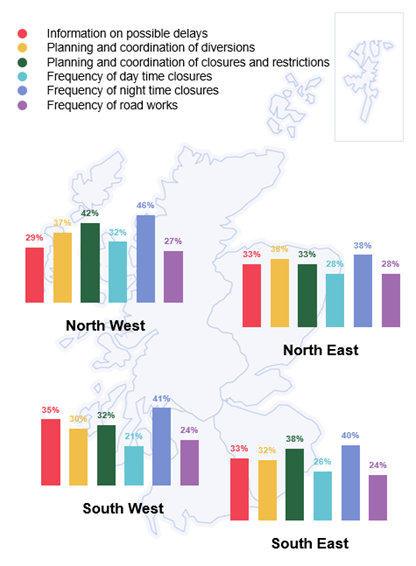
Transport Scotland’s approach to road works
Respondents were asked to choose between two approaches to road closures: short-term full road closures with adequate notice to adjust travel arrangements and long-term lane closures with delays. In line with previous years, most respondents (83%) said they preferred short term full road closures, though the proportion stating this has increased by 8% since 2019 (Figure 3.4).
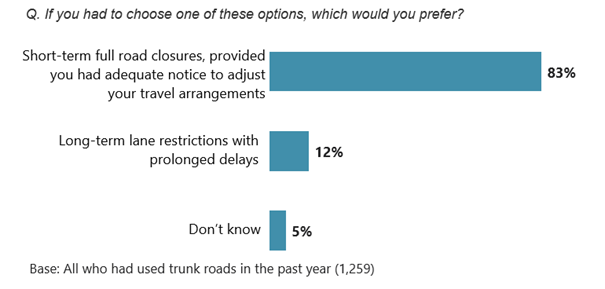
Respondents who expressed dissatisfaction with the frequency of roadworks were asked with which roads they were most dissatisfied. The three most common responses were the M8 (28%), A90 (15%) and A720 (12%).
Winter maintenance
Respondents were fairly positive about winter maintenance, with 59% being satisfied with the promptness with which roads are gritted and 53% with the promptness with which they are cleared (Figure 3.5).
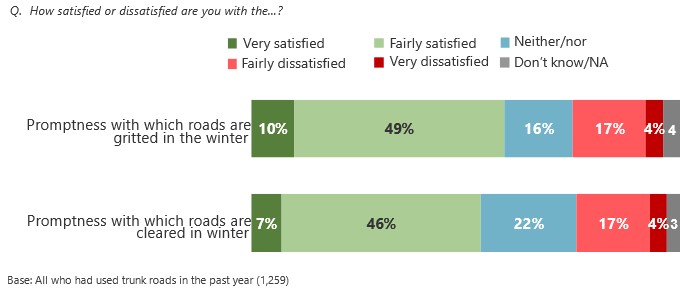
Overall satisfaction with winter maintenance was lower than in 2019. However, 2019 had the highest levels of satisfaction since the beginning of the survey in 2009 (Figure 3.6).
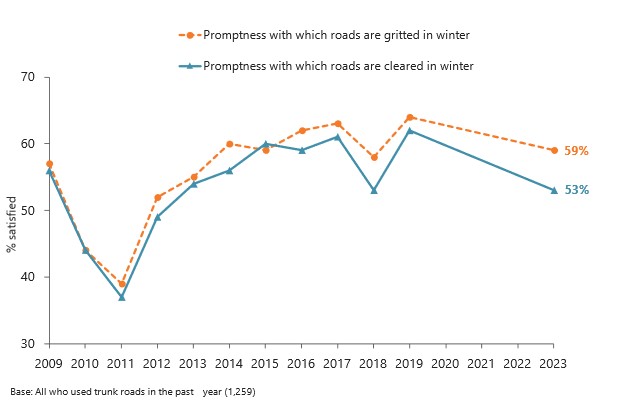
Users in the North West were more likely than average to be dissatisfied with both aspects of winter maintenance – 34% were dissatisfied with the promptness roads are gritted (compared to 21% overall) and 31% with the promptness roads are cleared (compared to 21%) (Figure 3.7).
